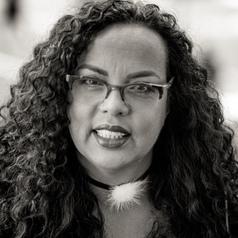
Renée Otmar
Honorary Research Fellow, Faculty of Health, Deakin University
Dr Renée Otmar HLM DE JMM* has been a professional editor since 1989 and has worked extensively in the publishing and related industries as a senior editor, managing editor, publisher, trainer and coach. She has conducted a parallel career in public health research and human research ethics, serving as a board director and on human research ethics committees since 2013. Renée regularly presents guest lectures, workshops and seminars on writing craft, editing practice, and writing and editing for diversity and representation. A certified coach, she provides training and professional supervision for editors and writers working with sensitive, explicit or distressing content. As a consultant and practising editor she works in academic, creative non-fiction and fiction genres (contemporary fiction, historical fiction, crime fiction and romance). She is a writer, ghostwriter and producer of life stories. Her publications include research papers in academic journals (e.g. Osteoporosis International and Lancet Oncology); In Cold Blood: The murder of baby Jordan (true crime, New Africa Books 2007); and Editing for Sensitivity, Diversity and Inclusion: A guide for professional editors (Cambridge University Press, 2023).
*
HLM – Honorary Life Member, Editors Victoria, a branch of IPEd, 2000
DE – Distinguished Editor, IPEd, 2008
JMM – Janet Mackenzie Medal, IPEd, 2022
Less ![]()
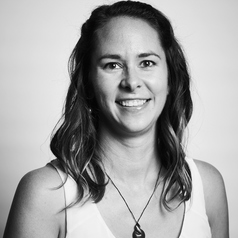
Renée M Prokopavicius
Postdoctoral Researcher in Plant Ecophysiology, Western Sydney University
Dr Renée Marchin Prokopavicius’ research aims to improve predictions of the effects of climate change on terrestrial and urban ecosystems. Two global changes that affect plant productivity are increasing temperature and drought. She primarily use ecophysiological approaches to understand how plant traits determine which species or genotypes succeed in changing environments. Her research has focused on plant functional traits related to water relations and growth, such as phenology, stomatal conductance, and photosynthesis. She has worked in a diverse range of terrestrial ecosystems, from temperate forests to subalpine grasslands, and from agricultural cropping systems to urban forests.
Less ![]()
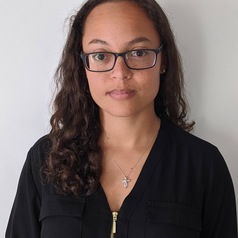
Renee Ragin Randall
Assistant Professor of Comparative Literature and Middle East Studies, University of Michigan
I am a scholar of war and trauma; world literature and literary culture; visual studies; and the Global South. My current book project is on moral, social and ideological collapse during the Lebanese civil wars (1975-1990) as represented by the recurrent trope of madness in literature and visual arts produced during and after the conflict. Prior to my return to academia, I served as a Foreign Service Officer with the US Department of State in Washington DC and Saudi Arabia. I am also on the board of a local chapter of the National Alliance on Mental Illness (NAMI).
Less ![]()
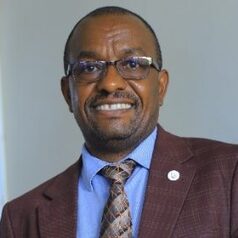
Renson Muchiri Mwangi
Associate Professor of Business Research Methods and Director of Quality Assurance, KCA University
Prof. Renson Muchiri is a graduate of Weatherhead School of Management, Case Western Reserve University, Ohio, USA, and an alumnus of the DAAD/DIES International Deans’ leadership Course (IDC). He holds a Doctor of Management from Weatherhead School of Management, Master of Science in Statistics and Bachelor of Education degrees both from Egerton University, Kenya. At Weatherhead School of Management, he was a DM/Mandel Scholar and won the Mitchell V. Morse DM Scholarship.
Prof. Renson has vast experience in Kenyan basic, tertiary, and University education having started his career as a graduate teacher under Teachers Service Commission (TSC), then serving as a lecturer at Kenya College of Accountancy, and deputy department head at Kenya School of Professional Studies. His university teaching career began in 1998 at Africa Nazarene University, and continuing to Daystar University, and KCA University. He has also served as an academic leadership in senior university positions. Prof. Muchiri is a program peer reviewer with the Commission for University Education (CUE), has been an examiner with Kenya Accountants and Secretaries National Examination Board (KASNEB), and is an external dissertation supervisor with University of Botswana.
Prof. Muchiri has been, continues to be, involved in research and scholarship. He has organized and convened conferences that bring together industry practitioners, government officials, and academic scholars. He has also led research projects and conducted research in areas of, entrepreneurship, small business management, and youth engagement with Kenyan cooperatives. He has supervised and graduate masters’ and PhD students. Renson has published papers in peered refereed journals like the Journal of Small Business Management, the Case Focus journal, among others, and presented papers in international peer refereed conferences including Africa Academy of Management, American Education Research Association, (AERA), Kenya Scholars and Studies Association (KESSA. As a scholar, Renson has been member of board of peer reviewers for Journal of Entrepreneurship Education (JEE), Editor of KCA Journal of Business Management, member of Insurance regulatory Authority (IRA) Research Review Board of Kenya, as well as a founder member and official of the Private Universities Research Consortium of Kenya (PURCK). He has reviewed journal articles, conference papers, and book manuscripts. He is a member of Strategic Management Society (SMS), Africa Academy of Management (AFAM), and American Education Research Association (AERA). Prof. Muchiri’s research interest and focus areas include entrepreneurship, organization leadership, and SMEs development.
Less ![]()

Reshma Sunkur
Researcher, Environmental Sciences, University of Technology, Mauritius
Reshma, an environmental scientist, boasts over a decade of experience teaching environmental studies, marine science, and environmental modeling. Over the past five years, she has been actively involved in implementing numerous locally and internationally funded projects, serving as a technical expert with a focus on climate change adaptation. Engaged in cutting-edge research, Reshma consistently publishes in esteemed scientific journals and collaborates with fellow researchers on global conservation efforts, all while pursuing her doctoral research on ocean resource management in a changing climate.
Less ![]()
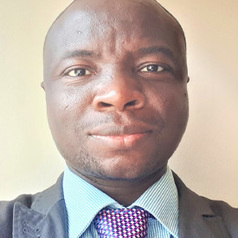
Reuben Larbi
Research Fellow in Health Determinants of Research Collaboration, Lancaster University
I am a Research Fellow at Lancaster University working with Blackpool Council on a National Institute of Health and Care Research (NIHR) Health Determinants Research Collaboration (HDRC). The purpose is to help enable local authorities to become more research-active and to make evidence-informed decisions by undertaking research and evaluation relating to their activities, including synthesising and mobilising existing evidence. My research focus is socio-ecological determinants of health and wellbeing, particularly in low-income urban settings. I am passionate about addressing the unjust deprivations and socio-economic conditions under which people live, grow and work, and the consequent inequalities in health and wellbeing. I have experience assessing vulnerability of the urban population to climatic and other environmental hazards and implementing feasible adaptation measures in different ecological contexts. My research approach involves multidisciplinary methods that combine qualitative and quantitative techniques with spatial analyses
Less ![]()

Rhea Almeida
Research Project Manager, NYU Metro Center, New York University
Rhea is a policy researcher and youth development expert, currently focused on equitable summer learning at NYU’s Metropolitan Center for Research on Equity and the Transformation of Schools. She believes in bottom-up approaches to social justice, equity-centered policy design, and coalition-building and strategic advocacy. Formerly a news journalist and freelance writer, she has covered a wide range of issues, from elections to women’s rights, education, the climate crisis, and labor policy, working across mediums of TV, digital, and podcasts. She spent two years doing field work with a women's labor union. She has a Masters in Public Administration – Policy & Development from NYU Wagner.
Less ![]()
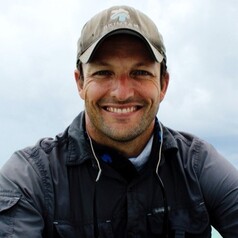
Rhett H. Bennett
Program Manager at Wildlife Conservation Society, Rhodes University
Dr Rhett H. Bennett is Program Manager for the Western Indian Ocean shark and ray conservation program, at the Wildlife Conservation Society. Rhett is also a research associate at the South African Institute for Aquatic Biodiversity and at Rhodes University.
Less ![]()

Rhiannon McCluskey
Rhiannon McCluskey is a Research Officer at the Institute of Development Studies. Her research focuses on governance, taxation, and accountability in developing countries. For the International Centre for Tax and Development, she has conducted research in Sierra Leone, Tanzania, and Kenya in order to investigate the effectiveness of donor initiatives to build capacity in international taxation. Rhiannon holds a BA in Peace and Conflict Studies, Political Science and African Studies from the University of Toronto and an MA in Governance and Development from the Institute of Development Studies.
Less ![]()

Rhiannon Owen
Professor of Statistics, Swansea University
Rhiannon Owen is Professor of Statistics at Swansea University Medical School and Co-Director of the Population Data Science Research Institute at Swansea University. Her main research interests are in the development, evaluation, and application of statistical methods for evidence synthesis of diverse data sources, analysis of population-level linked electronic health records, health technology assessment and service evaluation, in order to inform health-care policy and improvement. This work has been and is supported by the Academy of Medical Sciences (AMS), Health and Care Research Wales (HCRW), Health Data Research UK (HDRUK), the Medical Research Council (MRC), and the National Institute for Health and Care Research (NIHR). In 2021, Rhiannon was awarded a prestigious Academy of Medical Sciences Springboard Fellowship to develop statistical methods to improve the diagnosis and care of hospitalised patients with COVID- 19.
Rhiannon is a member of the UK National Institute for Health and Care Excellence (NICE) Technology Appraisal Committee, member of the NICE Decision Support Unit, and Associate Member of the NICE Technical Support Unit. She has extensive experience of cross-sector collaboration including as a consultant, providing methodological and strategic advice to the pharmaceutical and healthcare industry nationally and internationally.
Less ![]()

Rhiannon Phillips
Reader in Health Psychology, Cardiff Metropolitan University
Rhiannon is a Health Psychologist and Health Services Researcher. She is interested in a variety of approaches that aim to build confidence and resilience, including Cognitive Behaviour Therapy, Motivational Interviewing, psycho-education, and self-management techniques. Her research also looks at how culture, systems, and policy can be changed to support improvements in health, well-being, and the quality of patient care.
Rhiannon's work has covered a whole host of different topics including breastfeeding support, pregnancy and parenting for women with autoimmune rheumatic diseases, improving antibiotic prescribing practices for acute infections, prevention of anxiety and depression in children, self-management of persistent pain, and occupational health.
Less ![]()
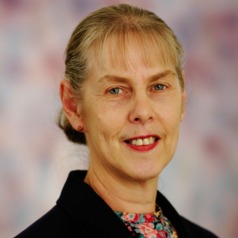
Rhonda Lynette-Smith
Senior Lecturer, Economics Dept; Senior Fellow, Law, University of Melbourne, University of Melbourne
Rhonda Smith holds the degree of Doctor of Commerce from the University of Melbourne. She teaches graduate and under graduate subjects in the Economics Department and also teaches in the Competition Law Masters program in the Law School. She is a former ACCC commissioner and is presently a member of the Australian Copyright Tribunal and until recently was a lay member of the High Court of New Zealand. She provides economic advice in relation to competition issues and has acted as an expert witness in a number of competition cases.
Less ![]()
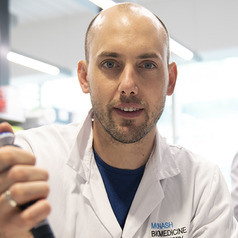
Rhys Grinter
Lab Head, Biomedicine Discovery Institute, Monash University
Rhys heads the Grinter lab at Monash University in the Biomedicine Discovery Institute.
Originally from South Australia, Rhys earned his PhD from the University of Glasgow. He relocated to Monash University in 2015 working as a research fellow in labs Prof. Trevor Lithgow and A/Prof. Chris Greening, before founding the independent Grinter lab in 2021.
Rhys has diverse interests in the molecular physiology of bacteria and has strong experience in applying a combination of structural biology, molecular cell biology and chemical biology to resolve important questions in this area.
Less ![]()

Rhys Jones1
Professor of Human Geography, Aberystwyth University
My work lies at the intersection between political, historical and cultural geography and focuses in particular on the various geographies of the state and its related group identities. I have addressed the geographies of the state in a variety of contexts, ranging from the various organisational, territorial and cultural changes associated with the state-making process in medieval Wales to the more contemporary processes of territorial and functional restructuring affecting the UK state. My work on these themes has appeared in a variety of different journal articles as well as a monograph - People/States/Territories - published by Blackwell as part of the RGS-IBG Book Series.
I have also examined the geographies of group identity in a number of different contexts. Work here includes my research on the emergence of ethnic identities in medieval Wales and my more current research on the geographies of Welsh identity in the late twentieth century. This latter work has recently appeared in a book entitled Placing the Nation (with Carwyn Fowler). My research, to date, has been supported by funding from the ESRC, the AHRC, the Leverhulme Trust, the British Academy and the University of Wales' Board of Celtic Studies.
I teach on a number of these research themes at undergraduate and postgraduate level. Most of teaching is done through the medium of Welsh but I also teach on some English-medium modules in the field of political geography. I have also sought to consolidate my competence in teaching through publishing a textbook entitled An Introduction to Political Geography (with Martin Jones and Mike Woods). My competence in teaching was confirmed when I received an Aberystwyth University Award for Teaching Excellence in 2005.
Less ![]()
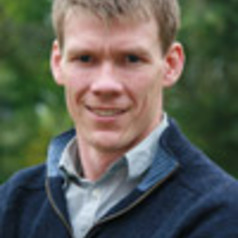
Rhys ap Gwilym
Senior Lecturer in Economics, Bangor University
Dr Rhys ap Gwilym is a Senior Lecturer in Economics at Bangor University’s Business School. He trained as a macroeconomist at Cardiff University, gaining his PhD on the “Macroeconomic Implications of Behavioural Finance Models” in 2009. His academic research has involved developing models which introduce behavioural factors into macroeconomic analysis (including DSGE models) and the analysis of financial instruments in a general equilibrium setting. He has published in journals including the Journal of Banking and Finance, Economics Letters and the Southern Economic Journal.
More recently, his research interests have evolved to cover spatial economics and public finance. He is currently working on a project examining how geographical differences in access to finance influence regional economic disparities; in particular the links between the financialization of land and regional economic development.
Rhys has a strong interest in regional development policy and its role in Wales in particular. He has been a principal investigator on two grant-funded research projects for the Welsh Government relating to land value tax and tourism taxes. He is a member of the Institute of Welsh Affairs’ Economic Policy Group, where he has been involved in the development of discussion papers on the Welsh economy. He recently contributed to the “expert roundtable on the Welsh tax base & implications for public policy”.
Less ![]()

Ria Devereux
PhD Student, Microplastic Pollution, University of East London
I recently submitted and defended my PhD which focused on microplastics in rivers and estuaries case study:The Thames River at the University of East London.
Previous to that I did a masters in marine science and a project on microplastic abundance within Cnidaria and Ctenophores within the North Sea.
I have a strong interest in plastic pollution especially within marine and freshwater environments with research papers published within the area.
Less ![]()

Ricard Rosich Argelich
Historiador y profesor. Investigador Predoctoral FPU en Historia Contemporánea. Miembro del Centre d'Investigacions Film-Història y del Centre d'Estudis Històrics Internacionals, Universitat de Barcelona
Historiador y profesor. Investigador Predoctoral FPU en Historia Contemporánea. Miembro del Centre d'Investigacions Film-Història y del Centre d'Estudis Històrics Internacionals. UB - Universitat de Barcelona.
Less ![]()

Ricardo Amansure
Senior Researcher at the Centre for Sustainability Transitions, Stellenbosch University
Dr Ric Amansure's field of research is sustainable development, sustainability transitions, renewable energy, ESG, and smart cities.
Dr Amansure has a diverse educational background. He completed his PhD, which focused on revenue management to beneficiary communities in the renewable energy sector, and has an extensive professional history, including serving as CEO of MercyShips Southern Africa and working as a corporate social responsibility consultant. He has also made notable contributions to the renewable energy sector, pioneering innovative approaches in socio-economic development, enterprise development, and public-private partnerships. He was the head of communications, fund- and business development at the Institute for Justice and Reconciliation, overseeing fundraising, business development initiatives, and the organisation’s media and branding efforts. He works at the Centre for Sustainability Transitions as senior researcher.
Less ![]()
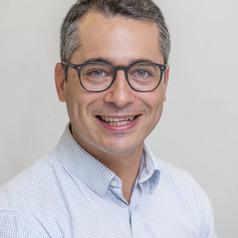
Ricardo J. Soares Magalhaes
Professor, School of Veterinary Science, The University of Queensland
Ricardo J. Soares Magalhães is Professor of Zoonotic Disease Epidemiology and Biosecurity and Director of the Queensland Alliance for One Health Sciences. Prof. Soares Magalhaes is a European Veterinary Board Specialist in Population Medicine with extensive national and international research experience in three main areas: spatial epidemiology of zoonotic infections, outbreak response for emerging infectious diseases and risk assessment of animal’s environmental health/biosecurity. A key focus of his team's current research is to develop geographical risk assessment methods to assist disease prioritisation for improved surveillance and risk management in both human and animal populations.
Prof. Soares Magalhães’s team is currently leading the development of a number of nationwide epidemiological data analytics platforms including for zoonotic influenza (WHO SEARO, WHO Nepal), antimicrobial resistance in agribusinesses and the environment (CRC SAAFE) and veterinary clinical data (VARDC and ACARCinom).
Less ![]()
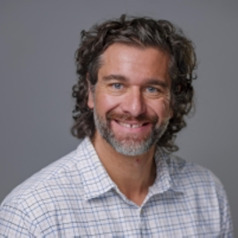
Ricardo Safra de Campos
Senior Lecturer in Human Geography, University of Exeter
Dr. Ricardo Safra de Campos is Senior Lecturer in Human Geography at the University of Exeter working on population movements in the context of climate change, with a research focus on migration, sustainability and wellbeing. His work has been published in interdisciplinary journals including Nature Climate Change, Proceedings of the National Academy of Sciences (PNAS), Global Environmental Change, Current Opinion in Environmental Sustainability, and discipline-specific such as Population, Space and Place. He is a contributing author on the Intergovernmental Panel on Climate Change (IPCC) Special Report on the Ocean and Cryosphere in a Changing Climate. Ricardo gave expert oral evidence on migration and climate change to EU Home Affairs Sub-Committee of the UK’s House of Lords in 2020. He serves on the advisory board of international research and policy initiatives on climate-related displacement in Africa, Asia and the Caribbean; and is on the editorial board for the journals Climatic Change; PLOSClimate; and Climate Mobilities, Frontiers in Climate.
Less ![]()

Riccardo Gasco
PhD Candidate, Università di Bologna
Riccardo Gasco is a doctoral student in Political and Social Sciences at the University of Bologna. Currently he is a Visiting Research Fellow at Sabanci University. He holds a background in International Relations and Diplomatic Sciences, which he obtained from the University of Genoa and the School of Oriental and African Studies in London. His current research interests are focused on Turkey's foreign policy, the Middle East, and Turkey's relations with NATO and Russia. His research project investigates the foreign policy behavior of emerging middle powers, using Turkey as a case study. He divides his time between Italy and Turkey for research and work purposes.
Less ![]()
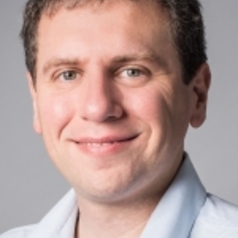
Riccardo Paolini
Associate Professor, School of Built Environment, UNSW Sydney
Riccardo by training is a building engineer and he received a Ph.D. in Building Systems Engineering from Politecnico di Milano, Italy, in 2011. He joined UNSW Built Environment in February 2017.
He is an Associate Professor in the High Performance Architecture research cluster, where he is also the manager of the HPA Lab. Riccardo is also an affiliate of the Heat Island Group, Lawrence Berkeley National Laboratory, Berkeley, CA, USA.
Previously, he had an appointment as post-doc at Politecnico di Milano, Italy (2011-2017). He had been teaching heat and moisture transport in building envelope applications at Politecnico di Milano at postgraduate level for six years. He now teaches in the Architecture Program at the School of Built Environment.
Less ![]()

Rich Hanley
Professor Emeritus of Journalism, Quinnipiac University
Richard Hanley is a Professor Emeritus of Journalism at Quinnipiac University in Hamden, Connecticut.
A graduate of the University of New Haven and Wesleyan University, he served as a journalist for local, national, and global media for 23 years in print, television and online before joining Quinnipiac in 2001. He has produced, written, and directed Emmy-nominated documentaries for CPTV and PBS. He founded the Sports Journalism graduate program at Quinnipiac and served as co-director of Sports Studies, an interdisciplinary minor.
Less ![]()

Rich Harrill
Research Professor of Hospitality and Tourism and Director, International Tourism Research Institute, University of South Carolina
Rich Harrill has a strong record of success in and an international reputation for leveraging his academic and professional experience combining tourism with economic development and urban planning to drive local, regional, national and international business, tourism and economic growth. Harrill brings an industry-driven business mode and academic entrepreneurship to the university level.
Currently, in his role as director of the International Tourism Research Institute (ITRI) at the University of South Carolina, Harrill conducts studies on applied research to provide practical solutions to increase U.S. and international tourism industry competitiveness, resulting in additional revenues and strong economic development opportunities.
Harrill has focused extensively on international tourism and economic development. He collaborated with the U.S. Travel Association and the U.S. Department of Commerce, Office of Travel and Tourism Industries on the definitive study of future Chinese outbound tourism to the U.S., potentially leading to additional tourism dollars for both China and the United States. In doing this research, he directly influenced both U.S. and China federal policies to enable cultural and research exchanges. He is currently working with the U.S. Department of Commerce, Office of Travel and Tourism on a study of the recent decline in Japanese tourists to the United States. He also has conducted additional research in the Dominican Republic on tourism development, and accepted a two-month appointment as a visiting professor at the University of Aruba.
Harrill earned his Ph.D. in parks, recreation, and tourism management and his master's degree in city and regional planning from Clemson University. He holds a B.A. in political science from the College of Charleston. He has published his research in urban planning's top three journals: the Journal of American Planning Association, Journal of Planning Education and Research and Journal of Planning Literature. The Journal of the American Planning Association is the top-ranked journal for urban studies and number-two ranked journal for planning and development.
Harrill edited Fundamentals of Destination Management and Marketing (American Hotel and Lodging Association, 2005), the first comprehensive textbook for the destination management industry. He is also co-editor of the International Journal of Culture, Tourism and Hospitality Research and research notes editor of Tourism Analysis.
Less ![]()
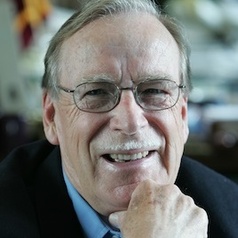
Richard A. Easterlin
Richard A. Easterlin is currently University Professor and Professor of Economics, University of Southern California. He is a member of the National Academy of Sciences and a Distinguished Fellow of the American Economic Association. He is also a Fellow of the American Academy of Arts and Sciences, the Econometric Society, and the Institute for the Study of Labor (IZA), and is a former president of the Population Association of America, Economic History Association, and Western Economic Association International.
He is the author, among other things, of Happiness, Growth and The Life Cycle (2010), The Reluctant Economist (2004), Growth Triumphant: The 21st Century in Historical Perspective (1996), and Birth and Fortune: The Impact of Numbers on Personal Welfare (1980; 2nd ed. 1987), and editor of Happiness in Economics (2002).
His current research is on the association between economic growth, public policy, and subjective well-being.
Less ![]()
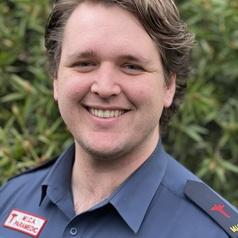
Richard Armour
PhD Candidate, Monash University
Critical Care Paramedic interested in novel roles for paramedics integrated in healthcare. Current Doctoral Candidate at Monash University exploring the role of paramedics in providing care to people who use substances.
Less ![]()

Richard Ballard
Chief Researcher: Gauteng City-Region Observatory, Wits University and University of Johannesburg, University of the Witwatersrand
Richard Ballard trained in the field of geography at the University of KwaZulu-Natal and the University of Wales, Swansea.
One of his research themes is on the relationship between the ideals of spatial transformation and real world processes that produce urban space. Under this theme he has published on attempts by developers to secure permission to build major projects; the policy turn to mega projects within the public housing sector; the role of construction labour in producing walled suburbs and the production of space in Gauteng Province.
A second area of interest is the way in which residents of South Africa's cities form identities in relation to the places where they live and the people who share these spaces. Publications on this theme are on white responses to urban desegregation, gated communities, the place of plants and animals in cities, social cohesion and changing scales of identification.
A third area of interest is urban governance and politics, with publications on local government elections, participatory governance processes, social movements and everyday resistance.
Recent publications
Ballard, R., and Barnett, C. (eds) (2023). The Routledge Handbook of Social Change. Abingdon: Routledge.
Ballard, R., and Barnett, C. (2023). ‘Apprehensions of Social Change’. In Richard Ballard and Clive Barnett (eds) The Routledge Handbook of Social Change. Abingdon: Routledge, pp. 1-16.
Ballard, R. (2023). ‘Everyday resistance: theorising ow the “weak” change the world’. In Richard Ballard and Clive Barnett (eds) The Routledge Handbook of Social Change. Abingdon: Routledge, pp. 303-314.
Ballard, R., and Mapukata, C. (2022). South African Urban Imaginaries. GCRO Research Report 13. Johannesburg: Gauteng City-Region Observatory.
Ballard, R., Butcher, S., Joseph, K., de Kadt, J., Hamann, C., Mapukata, S., Mkhize, T., Mosiane, N., Parker, A., and Spiropoulos, L. (2021). ‘Scale of Belonging: Gauteng 30 Years After the Repeal of the Group Areas Act’. Urban Forum. 32(2), pp. 131-139.
Ballard, R., Jones, G.A., and Ngwenya, M. (2021). ‘Trickle-out urbanism: Are Johannesburg’s gated communities good for their poor neighbours?’ Urban Forum. 32(2), pp. 165-182.
Ballard, R., Hamann. C., and Mkhize., T. (2021). ‘Johannesburg: Repetitions and Disruptions of Spatial Patterns’. In Lemon, A., Donaldson, R. and Visser, G. (eds) South African urban change three decades after apartheid: Homes Still Apart? Cham, Switzerland: Springer, pp. 33-55.
Ballard, R., and Hamann, C. (2021). ‘Socio-Economic Segregation and Income Inequality in the City of Johannesburg’. In Maarten van Ham, Tiit Tammaru, Ruta Ubarevičienė and Heleen Janssen (eds) Urban Socio-Economic Segregation and Income Inequality. Cham, Switzerland: Springer. pp. 91-109.
Ballard, R., Hamann, C., and Mosiane, N. (2021) Spatial Trends in Gauteng. GCRO Occasional Paper 19.
Ballard, R., and Butcher, S. (2020). ‘Comparing the relational work of developers’. Editorial. Environment and Planning A: Economy and Space. 52(2), pp. 266-276.
Ballard, R., and Harrison, P. (2020). ‘Transnational Urbanism Interrupted: A Chinese developer’s attempts to secure approval to build the “New York of Africa” at Modderfontein, Johannesburg’. Environment and Planning A: Economy and Space. 52(2), pp. 383-402.
Ballard, R., (ed) (2019) Social Cohesion in Gauteng. GCRO Research Report # No 10. Johannesburg: Gauteng City-Region Observatory.
Ballard, R. and Harrison, P. (2019). 'Transnational urbanism interrupted: A Chinese developer’s attempts to secure approval to build the ‘New York of Africa’ at Modderfontein, Johannesburg.' Environment and Planning A. 52(2).
Ballard, R., Dittgen, R., Harrison, P. and Todes, A. (2017). ‘Megaprojects and urban visions: Johannesburg’s Corridors of Freedom and Modderfontein’. Transformation. 95.
Ballard, R. and Rubin, M. (2017). ‘A “Marshall Plan” for human settlements: how megaprojects became South Africa’s housing policy’. Transformation. 95.
Ballard, R. (2017). ‘Prefix as policy: megaprojects as South Africa’s big idea for human settlements’. Transformation. 95.
Ballard, R. (2017). ‘Governance and development’. In Douglas Richardson, Noel Castree, Michael F. Goodchild, Audrey L. Kobayashi, Weidong Liu Richard Marston (eds.) The International Encyclopaedia of Geography: People, the Earth, Environment, and Technology. London: Wiley-Blackwell.
Ballard, R. (2016). 'Whiteness and the end of apartheid - Review of Falkof, Nicky (2015) Satanism and Family Murder in Late Apartheid South Africa: Imagining the End of Whiteness. Houndmills: Palgrave Macmillan'. Journal of Southern African Studies. 42(5), 1021-1022.
Ballard, R., Nel, W., Hill, T. and Maharaj, B. (2016). 'South African Geography at 100'. South African Geographical Journal. 98(3), 403-404.
Ballard, R. (2016). Review of Daniel Conway and Pauline Leonard (2014). 'Migration, space and transnational identities: the British in South Africa', Ethnic and Racial Studies. 39(13), pp. 2427-2429.
Ballard, R. (2016). ‘Community and the balkanization of social membership’. Dialogues in Human Geography. 6(1), pp. 78–81
Ballard, R. (2015). ‘Geographies of development III: militancy, insurgency, encroachment, and development by the poor’. Progress in Human Geography. 39(2), pp. 214–224
Less ![]()
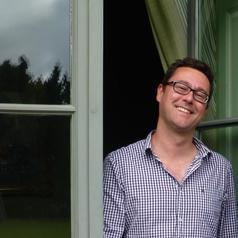
Richard Barnes
Professor of Law, University of Hull
Director of the McCoubrey Centre for International Law. Interests in law of the sea, maritime law, and the marine environment. member of Hull Maritime and Marine Institute
Less ![]()

Richard Bayliss
Professor of Molecular Medicine, School of Molecular and Cellular Biology, University of Leeds
I’m a structural biologist and Professor of Molecular Medicine at the University of Leeds. My team studies the functions and interactions of proteins using structural, cell, chemical and computational biology approaches. We work towards understanding the molecular mechanisms that underpin cellular functions and how these events are altered in human diseases such as cancer. In partnership with other scientists, we develop precision drugs that are tailored to individual proteins.
Less ![]()

Richard Bevan
Senior Lecturer in Biology, Newcastle University
My research interests are broad and cover the basic physiological processes of an animal up to those occurring at the animal-environment interaction. Underpinning my work is the use of remote monitoring technology such as heart rate monitoring, electronic data archival devices and satellite telemetry. Specific areas of study include: the physiology, ecology and behaviour of aquatic animals; energy expenditure of free-ranging animals; foraging behaviour of seabirds; use of stable isotopes to study animal ecology; spatial movements of animals; animal conservation.
Less ![]()
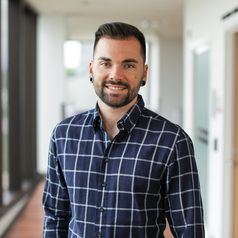
Richard Bloomfield
Assistant Professor in Management and Organizational Studies at Huron University College, Western University
Richard Bloomfield is passionate about improving the environmental and social sustainability of food production and has taught numerous business management and entrepreneurship courses at the undergraduate level. In addition, he co-founded Urban Roots London in 2017, a non-profit urban farm that is addressing issues around food access. In late 2019 he co-founded Sidetrack: A Wortley Café where many of his passions intersect. Richard completed a Bachelor of Arts in Globalization Studies and his HBA from the Ivey Business School. Later he completed a Masters of Business Administration from Ivey as well.
He is currently a PhD candidate in the Geography and Environment department at Western University studying the political economy of agro-food systems and examining current farmland policy, ownership dynamics, and alternative land-use models to support next or first-generation farmers in Ontario.
Less ![]()
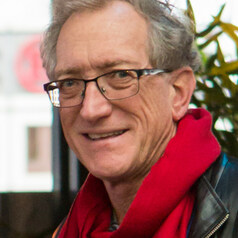
Richard Broome
Emeritus Professor - History, La Trobe University
Richard Broome AM is Emeritus Professor in History at La Trobe University and President of the Royal Historical Society of Victoria. He is the author of 16 books, including Aboriginal Australians. A History since 1788 5th edition (2019) and Aboriginal Victorians. A History since 1800 (2005). He has consulted for the RCADIC, Museums Victoria and The National Museum of Australia.
Less ![]()

Richard Buka
Haematology Registrar and Clinical Research Fellow, University of Birmingham
I am a haematology doctor and clinical research fellow at the University of Birmingham. I am currently undertaking my PhD studying the mechanisms by which platelets are activated in vaccine-induced immune thrombocytopenia with thrombosis, a new disorder that emerged as a consequence of adenoviral vector vaccination against COVID-19. I am passionate about collaborative research and research skills training and chair HaemSTAR, the UK's network of haematology registrars interested in non-malignant haematology. I also make a regular podcast called Don't Just Read the Guidelines where I interview, and give a platform to, up and coming doctors and scientists to share their work and ideas. If you would like to read more from me, head to my blog: classicalcompass.substack.com.
Less ![]()
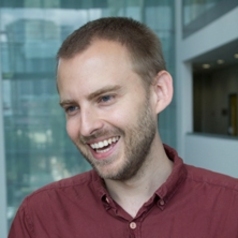
Richard Cook
Senior Lecturer in Psychology, City University London
Dr Cook completed his PhD in Cognitive, Perceptual and Brain Sciences at University College London before taking up a faculty position at City University London in February 2012. He is an ESRC Future Research Leader and Winner of the British Academy's Wiley Prize in Psychology.
Less ![]()

Richard Cornford
Research Scholar, International Institute for Applied Systems Analysis (IIASA)
Richard is a research scholar at IIASA, currently working to evaluate the impacts that alternative future land-use scenarios could have on European biodiversity via ecological modelling.
He previously completed his PhD at Imperial College London/ZSL/NHM, where he used quantitative approaches (including text-analysis) to better collate and synthesise global biodiversity data and improve our understanding of ecological responses to human activity.
Less ![]()
- Market Data





















